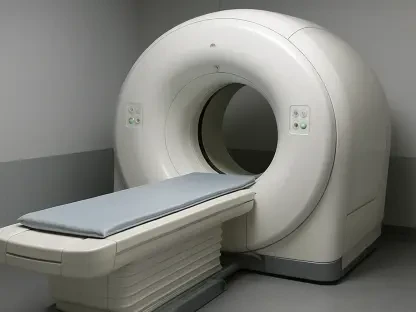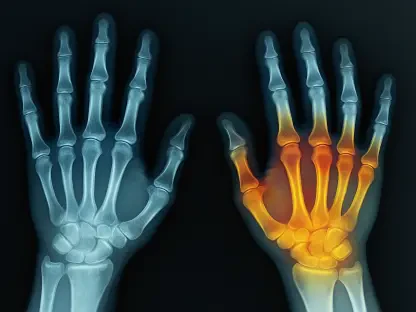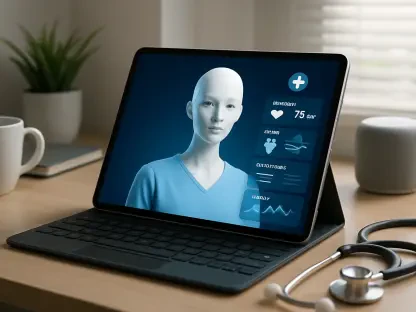The landscape of healthcare is undergoing a pivotal transformation, largely driven by the rapid integration of artificial intelligence (AI) in Clinical Decision Support Systems (CDSS). This evolution is reshaping the way healthcare professionals diagnose diseases, prescribe treatments, and manage patient care. The global CDSS market is experiencing significant growth, fueled by rising demand for AI-driven solutions and the transition towards digital health records. Businesses and healthcare institutions across the globe are investing heavily in this technology to enhance diagnostic accuracy, streamline patient care processes, and cut down on healthcare costs. As CDSS becomes increasingly indispensable, regions like North America continue to lead the market, although Asia-Pacific and Africa are emerging with impressive growth rates. This article delves into how AI is revitalizing CDSS and what the future holds for healthcare professionals and patients alike in this burgeoning sector.
AI-Driven Diagnostic Innovations
Artificial intelligence is revolutionizing medical diagnostics through its data processing capabilities and analytical prowess. CDSS integrated with AI can parse vast volumes of medical data, helping physicians make informed decisions based on insights drawn from historical patient information, clinical guidelines, and global medical research. This ability to analyze and interpret complex data sets is proving crucial in the field of precision medicine, where personalized treatments are designed based on individual patient profiles. AI-driven systems can rapidly identify patterns and correlations that may be beyond manual recognition, thus significantly improving the speed and accuracy of diagnoses. Moreover, AI-enhanced CDSS are increasingly being utilized in the development of predictive models that assess patient risk factors and forecast potential health issues, allowing for preemptive interventions and enhanced patient outcomes.
AI’s role extends beyond diagnostics; it plays a vital role in facilitating communication between complex biological systems and medical apparatuses. The deployment of advanced machine learning algorithms within CDSS empowers electronic devices to adapt to patient-specific data, thereby offering tailored medical advice and treatment options. This assists healthcare providers in developing more precise and individualized care plans. Institutions that leverage AI-enhanced CDSS find themselves better equipped to handle chronic diseases, where continuous monitoring and data-driven treatment adjustments play critical roles. Additionally, these systems are becoming essential in analyzing genomic data to aid in the understanding of genetic disorders and potential therapeutic targets. This integration of AI in genomics signals a transformative shift in how clinicians approach treatment, moving towards more holistic and personalized care strategies.
Expansion of AI Capabilities in CDSS
The integration of AI in CDSS is not limited to diagnostics alone but is also reshaping medication management and patient monitoring systems. Through AI-enhanced alert mechanisms, health practitioners are swiftly informed of critical changes in a patient’s condition, reducing the potential for human error and improving response times. The use of AI ensures immediate alerts when drug interactions, contraindications, or deviations from normal vitals are detected, enhancing patient safety and care quality. This system is particularly beneficial in hospital settings where patient volumes are high and timely interventions are crucial. Additionally, AI’s predictive algorithms assist in optimizing drug prescriptions by analyzing patient data to propose the most effective medication regimens, thus personalizing patient treatment plans even further.
Another transformative aspect of AI in CDSS is its role in the development of decision-making algorithms that support clinicians throughout the treatment process. By analyzing electronic health records, laboratory results, and other healthcare data sources, AI systems suggest evidence-based interventions and predict patient responses to proposed treatment strategies. This capability not only enhances the accuracy of treatment decisions but also promotes the efficient utilization of healthcare resources. These AI-driven systems are pivotal in delivering cost-effective healthcare services by minimizing unnecessary tests and procedures. Moreover, AI contributes to the continuous improvement of clinical workflows by identifying bottlenecks and suggesting workflow enhancements, leading to optimized care delivery and increased patient throughput.
Challenges and Opportunities Ahead
Despite the promising advancements, the deployment of AI in CDSS is not without its challenges. Privacy concerns loom large, with patient data security becoming a critical issue as more healthcare institutions transition to cloud-based systems. Ensuring robust data protection measures while complying with stringent healthcare regulations is paramount to gaining patient trust. Additionally, the lack of standardized protocols across different healthcare systems presents barriers to seamless integration and interoperability, necessitating coordinated efforts to establish comprehensive guidelines and frameworks. Overcoming these hurdles is essential for maximizing the efficacy of AI-powered CDSS and fostering innovation in this field. Addressing such challenges involves collaboration between stakeholders, including technology developers, healthcare providers, and regulatory bodies, to develop secure and interoperable systems.
For businesses and healthcare providers, the opportunities in this domain are abundant. Investing in AI technology and cloud-based solutions is increasingly viewed as a strategic priority to harness the potential quick decision-making and real-time data access capabilities offered by these systems. Companies that innovate in this space, focusing on applications in medical diagnostics and patient engagement, stand to benefit significantly. Furthermore, as the market shifts towards decentralized and patient-centric care, institutions that tailor their services to meet the demands of outpatient care facilities and clinics are set to capture new growth opportunities. It is also crucial for these stakeholders to engage in strategic partnerships and technology acquisitions to expand their capabilities and market reach.
A Transformative Shift in Healthcare
Artificial intelligence is transforming medical diagnostics by harnessing its substantial data processing and analytical strengths. AI-integrated Clinical Decision Support Systems (CDSS) sift through enormous amounts of medical data, assisting doctors in making sound decisions by leveraging insights from past patient records, clinical guidelines, and global research. This capability is vital in precision medicine, where treatments are customized based on individual patient profiles. AI systems can quickly detect patterns and connections often missed manually, enhancing diagnostic speed and accuracy significantly.
Beyond diagnostics, AI is critical in streamlining communication between intricate biological systems and medical devices. Advanced machine learning within CDSS allows electronic devices to interpret patient-specific data, offering personalized medical advice and treatment solutions. This aids healthcare providers in creating precise care plans, particularly useful in managing chronic diseases where constant monitoring and data-driven adjustments are crucial. Furthermore, AI systems are pivotal in genomic data analysis, improving understanding and treatment of genetic disorders, thus marking a shift towards personalized healthcare strategies.









